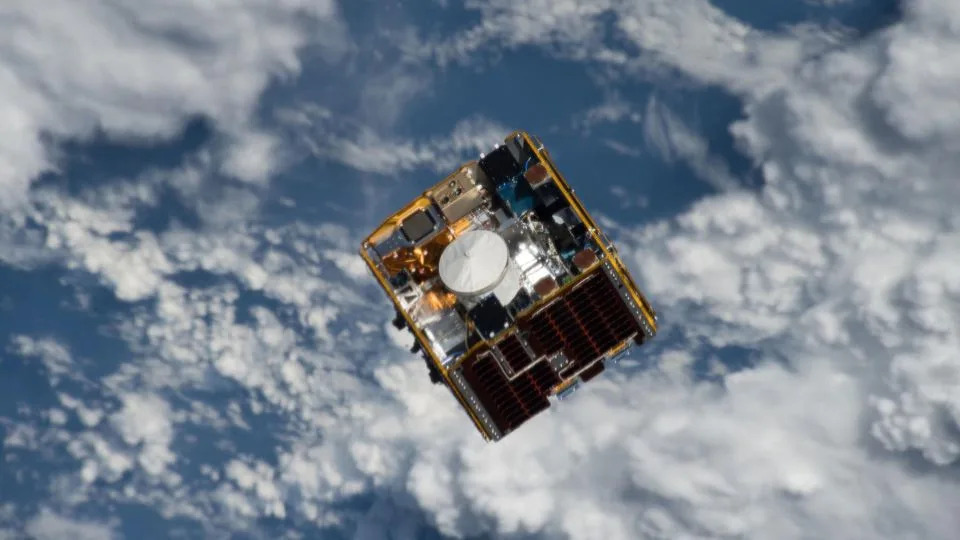A Russian weapon could wipe out US space edge

Early this month, senior US officials publicly shared their startling concern that a Russian anti-satellite weapon could make parts of space critical to American economic and national security unusable for up to a year.

As the United States works with international partners to prevent Russia from developing this weapon, it needs to recognize an inconvenient truth: an adversary could use a weapon that leaves the US military without access to some or all of its space capabilities. Such a loss would be devastating for US national security and, more broadly, our livelihoods.
House Intelligence Committee Chairman Mike Turner, an Ohio Republican, alluded to this new national security threat back in February. The White House soon confirmed it, noting that such a weapon hadn’t been deployed and did not present an immediate threat.
The success of US military operations presumes the availability of space, with satellites performing all or parts of critical functions, such as navigation, missile warning and communications. Some of these functions are specifically described as “no fail” missions.

The last time the military had to fight without satellite communications was in the Korean War, with it launching its first communications satellites in the 1960s during the Vietnam era. GPS was initiated in the 1970s.
A disruption to GPS satellites would force a platoon of Marines to navigate by a compass and map, the same method used by their great-grandfathers on Guadalcanal and Iwo Jima in World War II. The United States would struggle to detect the launch of intercontinental ballistic missiles or nuclear detonations without satellites.
The interruption to our daily lives would be similarly unimaginable, affecting our ability to communicate with each other and navigate from place to place. In addition to providing positioning and location information to a host of apps on our phones, GPS is the gold standard for time. Power utilities, communications networks and financial institutions all rely on precision timing derived from GPS.
Additionally, commercial air travel is increasingly dependent on GPS. In late April, the international airline Finnair suspended flights to Tartu, Estonia’s second-largest city, for a month due to GPS interference suspected to come from Russia. Internet access and connectivity for remote communities, airplanes, ships at sea and first responders also all depend on satellites.
Get AfriPrime Android Web View app....Click the link to Amazon app store to download https://rb.gy/3xek46
Before revelations about Russia’s development of a nuclear anti-satellite weapon, there had been indications of global recognition that the use of certain space weapons was bad for everyone. No nation has conducted a destructive anti-satellite test for almost three years.
In December 2022, with 155 nations voting in favor, the United Nations adopted a US-led resolution supporting a testing moratorium of destructive anti-satellite weapons. But these are peacetime trends that relate to weapons testing. During wartime, China or Russia may decide to use a weapon that risks sabotaging their own space access to deny the United States its space-enabled advantages.
That Russia vetoed — and China abstained from voting on — a US and Japanese-sponsored UN resolution in April banning nuclear weapons in space could suggest both are considering such a capability.
The Russian and Chinese position on this recent vote is puzzling, as nuclear weapons in space are already forbidden by the Outer Space Treaty of 1967, which more than 130 countries have signed, including Russia and China.
But Moscow defended its veto, with Vassily Nebenzia, Russia’s ambassador to the United Nations, calling the UN draft a “dirty spectacle” and a “cynical ploy.” (Russia and China had proposed an unsuccessful amendment that would have called on all countries to prevent all weapons in outer space.)
To address this risk, the US military and policymakers need to rethink baseline assumptions about the availability of space and consider worst-case scenarios. They should identify which critical missions can only, or best, be done by space, allocating limited resources on protecting and adding resilience to the highest criticality, space-only functions.
The proposed defense budget for 2025 does not reflect the scale and urgency of the need to counter space threats and protect space systems. Learning how to operate satellites in a space environment clogged with debris or increased radiation caused by a space weapon is also important.
For those space missions that could be done another way, it’s time to learn or relearn backup methods and integrate those backups into military operations. A government watchdog found that efforts to find alternatives for GPS could be improved.
If military planners identify capabilities that can only be done by satellites, leaders should consider how to fight without those capabilities or with them severely degraded. It would be better to think about what that might look like today, rather than be forced to reckon with that in the middle of a war. And proving that we can fight without space could also deter actions to disrupt space, as an adversary might see it’s not worth the trouble since the United States can maintain its military effectiveness without it.
According to the protagonist in Frank Herbert’s science fiction novel “Dune,” “The power to destroy a thing is the absolute control over it.” At least three nations can effectively do that to space — one is the United States, and the other two are not our friends.
Too much is at stake to assume that China or Russia, when the question could be victory or defeat, would not risk their own access to and use of space to cripple many of our most critical national security and defense capabilities — rendering us vulnerable in the event of an armed conflict.
We need a two-pronged effort to prepare for the worst: Double down on efforts to protect and maintain access to space in a hostile space environment and consider how to operate without space.
Get AfriPrime Android Web View app....Click the link to Amazon app store to download https://rb.gy/3xek46
- Questions and Answers
- Opinion
- Motivational and Inspiring Story
- Technology
- Live and Let live
- Focus
- Geopolitics
- Military-Arms/Equipment
- Sécurité
- Economy
- Beasts of Nations
- Machine Tools-The “Mother Industry”
- Art
- Causes
- Crafts
- Dance
- Drinks
- Film/Movie
- Fitness
- Food
- Jeux
- Gardening
- Health
- Domicile
- Literature
- Music
- Networking
- Autre
- Party
- Religion
- Shopping
- Sports
- Theater
- Health and Wellness
- News
- Culture

